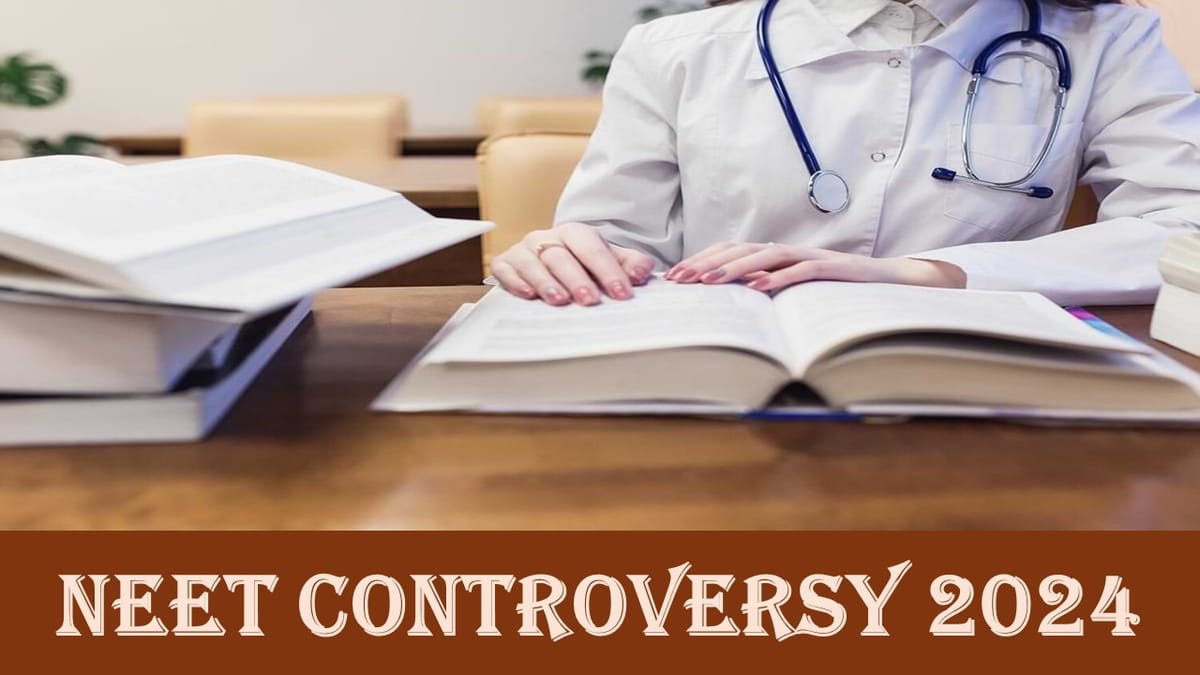TN Panel recommended that the state government remove NEET as a prerequisite for enrollment in medical programs as soon as possible.
Shubhra Goswamy | Jun 13, 2024 |

NEET Controversy 2024: Tamil Nadu Panel Demands Elimination of NEET and Increased Eligibility for Class 12
NEET Controversy 2024: Justice A K Rajan, a retired judge from the Madras High Court, has requested that the Tamil Nadu government move quickly to abolish the National Eligibility-cum-Entrance Test (NEET) by means of legal and/or legislative measures and replace it with higher secondary examination scores as the only requirement for admission to first-year medical programs.
The retired judge who chaired a high-level group suggested that the government guarantee equal opportunities to students from various boards of education and allow for the normalization of scores.
The panel was established in 2021, following the DMK’s electoral victory, with the aim of examining the effects of the NEET-based admissions procedure.
The committee’s study, which exposed NEET’s anti-poor and anti-social justice tendencies, was published and distributed to state governments. It was based on a thorough review of data as well as feedback from students, parents, and members of the public.
DMK president and Tamil Nadu chief minister M K Stalin shared a comprehensive report that his government had received in both English and other regional languages on social media. He wrote, “DMK was the first to foresee the hazards of #NEET and undertook a large-scale campaign against it.”
The committee recommended that “the State government take immediate action to remove NEET as a qualifying criterion for admission to medical programs, by adhering to the necessary legal and/or legislative procedures.” Entry 32 is an exclusive State subject that cannot be disregarded. The government may argue that the words “university education” found in Entry 25 List III is a “general provision” and the words “regulation of universities” in Entry II is a “special” provision.
Act 3 of 2007 regulates admission to affiliated colleges under the Tamil Nadu Dr MGR Medical University; hence, admission to those seats will be filled in accordance with the requirements of that Act. It noted that in this regard, the state may take the necessary actions to comply with the applicable laws and constitutional obligations.
Alternately, in order to ensure social justice and shield all vulnerable student communities from discrimination in admission to medical education programs, the state government may pass an Act, akin to Act 3/2007, outlining the necessity of eliminating NEET at all levels of medical education and obtaining the President’s assent for the same.
The committee advised that in order to guarantee equitable opportunities for students from various boards of education, higher secondary scores should be the only prerequisite for admission to first-degree medical programs. Normalization of scores may also be implemented.
Using a previously developed framework called the “Adversity Score,” re-profiling of scores can be carried out based on the degree of intensity of the socio-economic and other demographic “adversities” that lead to poor performance of all relevant students, mainly the disadvantaged and underprivileged, in their HSC examination.
It placed a strong emphasis on changing the curriculum, teaching methods, and learning assessment (Board Examination) to better equip students with higher-order thinking and subject knowledge. It also called for the reform of education up to the HSC to promote “learning” rather than “coaching.”
It stated that the learned knowledge and abilities would be concentrated and that the rote type of learning assessment that results in coaching would be removed.
In terms of deemed universities, the President’s approval must be secured before the Tamil Nadu Assembly passes an Act bringing all of the state’s deemed institutions under its jurisdiction in accordance with Act 3/2007.
“A Bill seeking exemption from NEET was unanimously passed by the Tamil Nadu Legislative Assembly based on the recommendations in the report. Stalin stated, “After an excessive delay on the part of the Tamil Nadu governor, it is currently awaiting presidential assent.”
The Chief Minister said in his post, “We are sharing the report of Justice A K Rajan Committee in English and all major Indian languages for everyone to better understand the ill effects of NEET,” in response to the growing opposition to NEET across the country as a result of the recent large-scale fluctuations.
In case of any Doubt regarding Membership you can mail us at [email protected]
Join Studycafe's WhatsApp Group or Telegram Channel for Latest Updates on Government Job, Sarkari Naukri, Private Jobs, Income Tax, GST, Companies Act, Judgements and CA, CS, ICWA, and MUCH MORE!"